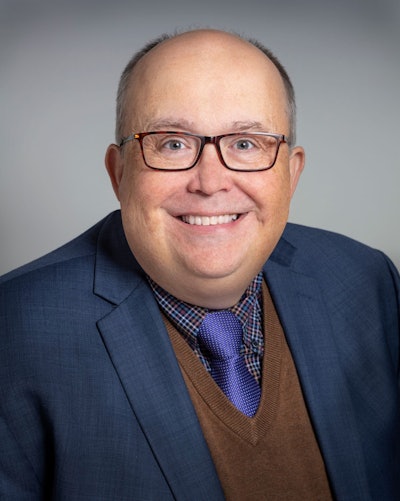Dear George,
Sitting safely on my front porch as afternoon flickered into evening, in the distance a boy came into sight. As he passed without even looking my way, I saw what appeared to be an African-American boy, perhaps 10-years-old, small for his age, not quite meandering and in no particular hurry either—just walking down the sidewalk as any child ought to feel an inalienable right to do.
As he headed out of sight, an image replaced him in my mind, an image of you lying face down calling for your mother, begging for mercy, or really not mercy as much as your own inalienable right to be treated as a human being. I started to rise from my chair, but then I remembered one of the prejudices often leveled against people like me, and I sat back down. I felt the need to follow along behind that child, to be there in case he needed protection in a world where boys like him grow into men like you.
The street was quiet. A few people were sitting on their porches here and there, one or two doing yard work in the last hour of daylight on a Sunday afternoon. As far as I know, good people live on my street. I told myself he would be fine. I did not see a parent trailing along behind him, but perhaps there was one watching nearby.
 Dr. Chris Gilmer
Dr. Chris GilmerWhile I have served on the faculty of three Historically Black Colleges and Universities and taught hundreds if not thousands of young African Americans, many of whom I came to think of as my own children; while there are two African-American women I think of as dearly as sisters and countless others, men and women, who are family-like friends; while I have pretty much devoted my life to serve as an instrument of inclusion, equity, and social justice, I never pretend to be what I am not. Neither do I hide what I am.
I do not know at a biological or emotional level what it is like to be Black. White privilege was my birthright. Poverty, and homosexuality, and a propensity toward obesity were equally my birthright, and I have experienced prejudice for all of those reasons. Still, I do not pretend to know what it feels like to be racially profiled or to know that my ancestors were violently separated from their homeland and brought in chains to serve people whose race is the same as mine.
I do, however, know what it feels like for it to be assumed that gay men are pedophiles, just waiting to corrupt innocence and innocents at the first opportunity. Thus, I sat back down in my chair on the porch today and did not follow the little boy, because people like me have to be especially careful in the ways we express our appropriate concern for children. Also, we are ourselves often targets of hate crimes based on prejudices deeply ingrained and a sense that it is somehow all right to hurt us because we started out less-than anyway.
This very afternoon, while my husband and I were sitting under the shade tree in our own backyard, a group of teenage boys started to enter the backdoor of the home across the alley. As they shut the door, they loudly shouted back at us one word: “Faggots.” I know this word well. It is not the first time I have heard it in similar contexts, and it probably will not be the last. This happened several hours before I saw the boy on the sidewalk. Instead of wondering if he will grow into the teenagers from earlier in the afternoon, I think only of the future I long for him to have, something that you will not have—a future in which a miracle occurs and universal love becomes as contagious as the COVID-19 virus and the hate which plague our world now.
I thought of my former student who posted on Facebook recently that she is afraid for the life of her Black son. I thought of my friend and colleague who is an African-American father of seven, his two youngest twin boys in high school, and I tried to imagine the visceral fear he must feel every time they leave his sight.
I thought of my favorite words from Dr. Martin Luther King, Jr.: “The arc of the moral universe is long, but it bends toward justice.” I have said those words dozens of times to thousands of people, and I have believed them. Sometimes the bend of the arc is difficult to see. Today, it almost feels impossible.
While I do not condone either the violence that was done to you or the violence that is being done in your memory, and while I pray that both will stop, I understand the rage which spurs the latter. I remember the words of Mrs. Fannie Lou Hamer who said it best: “I am sick and tired of being sick and tired.”
I pray for a day when it is easier to see the bend in the arc of the moral universe trending as it should. Until that day, I say these insufficient, but not hollow words to those who loved you. I am sorry, and I recommit my life to helping build a better world for all of our children, especially yours.
Dr. Chris Gilmer is the president of West Virginia University at Parkersburg and founder of the National Institutes for Historically-Underserved Students.


















